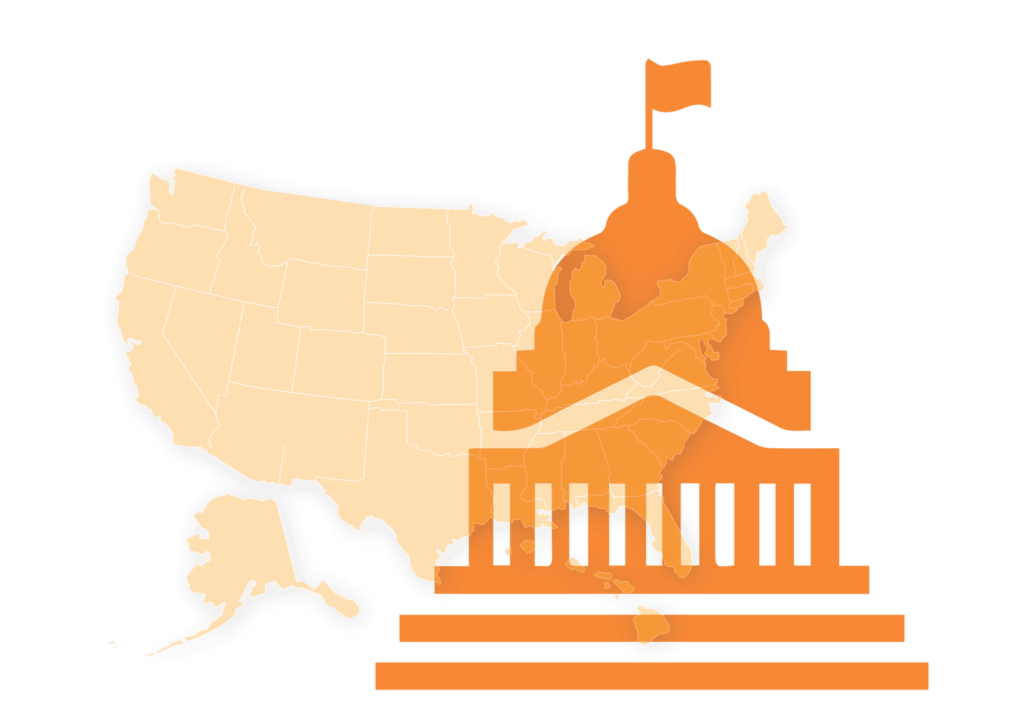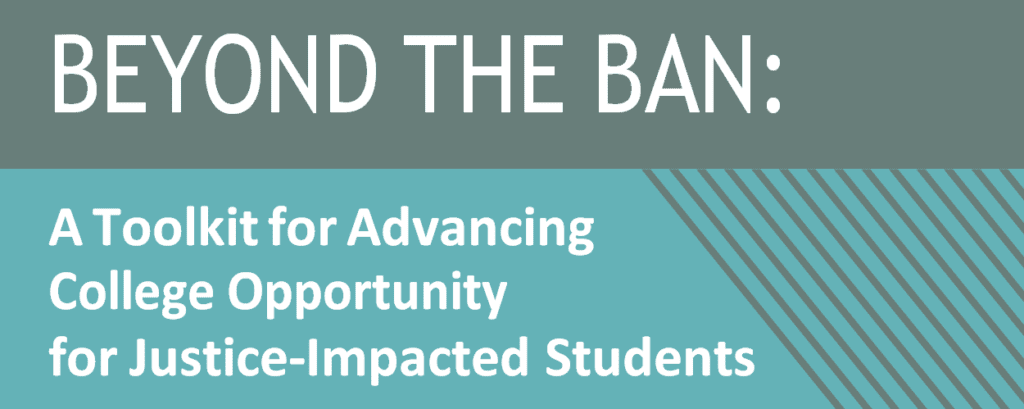RE: Comment Request; 2023-2024 Free Application for Federal Student Aid (FAFSA) (Docket No. ED-2022-SCC-0024)
Dear Coordinator Mullen,
On behalf of The Education Trust, the inaugural cohort of The Education Trust’s Justice Fellows Policy Program, and the undersigned organizations, thank you for the opportunity to respond to the request by the U.S. Department of Education (“the Department”) for comments regarding the 2023-2024 Free Application for Federal Student Aid (FAFSA).
In December 2020, Congress lifted a 26-year-old ban on Pell Grants for people in prison. The restoration of access to Pell Grants means that incarcerated people can once again apply for federal Pell Grants via FAFSA completion to pay for college courses.
Students who are incarcerated face additional barriers navigating the pathway of a post-secondary education. Access to federal financial aid can make a difference for low-income and first-generation incarcerated students. However, these students are the most likely to miss out on this aid because of the many barriers and complexities inherent in the admissions process. In particular, Black people are discriminated against after disclosing their involvement with the criminal legal system at higher rates than all other races. These discriminatory practices prompted higher education in prison program advocates to launch ban-the-box initiatives.
More broadly, “tough on crime” initiatives have historically placed higher education out of reach for incarcerated individuals. They are expected to navigate a minefield of legal exclusions in prison and after release. These policies send a clear message that an individual’s past actions are determinative of their future opportunities and abilities.
We appreciate the Department’s recognition that the FAFSA process needs to be simplified for incarcerated students. However, it appears that the current FAFSA and the proposed “Incarcerated Applicant Form” ask for the same information. The utility of a separate form is its ability to be amended to ease the application process. Furthermore, labelling the form the “Incarcerated Applicant Form” invites skepticism from incarcerated students who are used to their convictions excluding them from opportunities. A separate form is reminiscent of Jim Crow era presumptions of segregation and inherent inferiority. “Blacks Only” and “Whites Only” signage spoke to a separate but unequal reality for Black people. Dismantling such messages is necessary to dismantle the policies that birth them.
Additionally, the proposed separate form invites comparison to the exclusionary practices that result from criminal background checks. We have long had a mass incarceration problem marked by vast racial and gender disparities. Black men ages 18 to 19 are 12 times more likely to be imprisoned than White men of the same age, and Black women are imprisoned at twice the rate of White women. The “Incarcerated Applicant Form” falls short of being a criminal background check, but still threatens to stigmatize incarcerated students and dissuade them from completing the FAFSA. Without proper implementation and protection, the existence of this form post-release could allow institutions to circumvent ban-the-box policies. We recommend that the Department decline to create a separate “Incarcerated Applicant Form.”
However, if the Department of Education decides to employ an “Incarcerated Applicant Form,” we make the following recommendations:
- Implement the VERA Institute of Justice’s recommended edits and updates to the FAFSA, with special attention to the following which will especially impact the application experience for students who are incarcerated:
- On page 3 of the FAFSA IAF, question 11 asks applicants to provide their driver’s license number. Given that no person who is incarcerated is allowed to have their driver’s license with them, this request for information does not seem relevant and would most likely be impossible for students to complete. We ask that this question be removed.
- On page 8 of the FAFSA IAF, under question 100 there is a space where a parent can sign. This seems inappropriate given the applicant’s carceral setting and is likely unable to acquire a parent’s signature. We ask that this space be removed.
- Step Three and Four on the FAFSA IAF should be removed completely.
- On page 3 of the FAFSA IAF, for question 4 the Department should consider including instructions to include state or federal ID numbers on the address line.
- Removing the title “Incarcerated Applicant Form” to prevent any skepticism and stigma that would dissuade applicants from completing the FAFSA.
- To distinguish the form, explore the use of a reference number or specific color for the paper form.
We are happy to respond to any questions you may have regarding the contents of this letter; please contact Reid Setzer, The Education Trust’s Director of Government Affairs. Thank you for your consideration.
Sincerely,
Alexa Garza, Justice Fellow at The Education Trust
Alliance for Higher Education in Prison
American Humanist Association
Association of Young Americans (AYA)
Breakthrough Central Texas
Center for Law and Social Policy (CLASP)
Chris Wilson Foundation
Coalition of Texans with Disabilities
College and Community Fellowship
Education Opens Doors
Every Texan
Filling the Gap
For Oak Cliff
Hudson Catskill Housing Coalition
Japanese American Citizens League
Jarrod Wall, Justice Fellow at The Education Trust
Lee College
Life Unbolted Inc.
Lone Star Justice Alliance
MEASURE
National Alliance for Partnerships in Equity
National Coalition for the Homeless
New Hour for Women and Children
Operation Restoration
Patrick Rodriguez, Justice Fellow at The Education Trust
Rabia Qutab, Justice Fellow at The Education Trust
Rebuilding Independence My Style
Sojourners
Sound Justice Initiative
The City College of New York
The Education Trust
The Education Trust-Louisiana
The Education Trust-Midwest
The Education Trust-New York
The Education Trust-Washington State
The Ladies of Hope Ministries, Inc.
The Square One Project
UC Berkeley Underground Scholars
Urban League of Rochester
Vera Institute of Justice
William Freeman, Justice Fellow at The Education Trust
Young Invincibles






 June 30, 2021 by
June 30, 2021 by